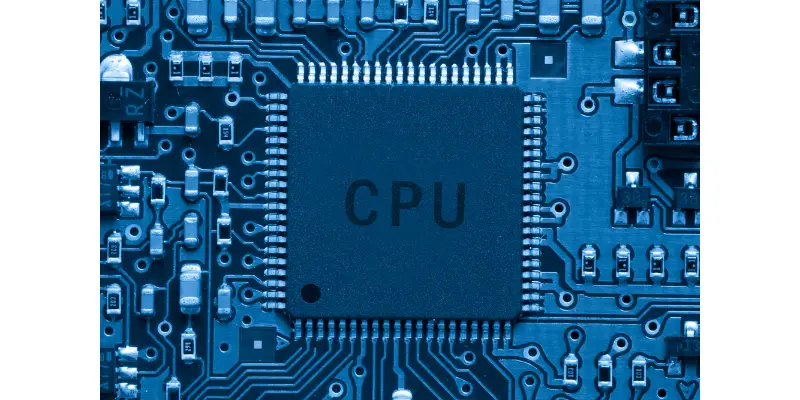Disclaimer: This post may contain affiliate links, meaning we get a small commission if you make a purchase through our links, at no cost to you. For more information, please visit our Disclaimer Page.
A lot of people wonder if CPU overclocking is worth the time and effort. In this post, I’ll answer the 6 common questions about CPU overclocking.
Overclocking is the process of running your CPU at a higher rate than the one set by the manufacturer. This has the benefit of increasing the capacity and speed of the computer at the cost of longevity. So, there are several factors you should consider before overclocking your CPU.
Table of Contents
Can Overclocking CPU Cause Stuttering?
Overclocking your CPU can cause stuttering in the audio or video of a specific task, commonly when playing a video game. This can be down to a couple of reasons.
First of all, your CPU may not be adequate to handle excessive speed. Not all CPUs are built the same way, so you need to make sure that your particular processor can withstand overclocking.
Even if your CPU is adequately built, other components such as the graphics unit or the RAM may not be. So, when you overclock the processor, you may encounter stuttering due to the insufficiency of the GPU.
The cooling system plays a big part in deciding whether your computer can be overclocked or not. Typically, low-grade, air-cooled systems cannot dissipate the heat fast enough. So, the CPU heats up far too quickly when you overclock, leading to poor performance and stuttering.
Can Overclocking Damage CPU?
Overclocking can lead to permanent CPU damage, especially if the cooling system in your PC is insufficient.
When you operate your computer at the normal, recommended rate, you still generate plenty of heat. This heat can damage the internal circuitry of your CPU, GPU or RAM, causing them to malfunction. Hence, a good cooling system is essential for a computer, be it desktop, laptop or notebook.
Now imagine the level of heat your computer will produce when you overclock. That temperature can very easily and quickly ruin your CPU permanently. So, you will need a very efficient cooling system if you are planning to overclock.
Another point of concern is the configuration. You will need a specific CPU configuration for the computer to overclock. Set it incorrectly, you will end up with an unstable overclocked CPU, which will harm itself.
Can You Break a CPU by Overclocking?
If you overclock your computer with an inadequate cooling system or perform the task with incorrect configuration, you can break the CPU.
Moreover, an overclocked system tends to crash if you run it for too long. Once this happens, you usually need to replace the old CPU with a new one.
Can You Overclock CPU Without BIOS?
Most people use the BIOS program to overclock their CPU. But even without getting into the BIOS setting, you still have a few options available. The best alternative is to use software designed for this specific task.
Luckily, there are a couple of easily accessible software you can use. The Intel Extreme Tuning Utility (XTU for short) for Intel processors and the Ryzen Masters for AMD processors are tw good options. And since most processors in the market belong to these two brands, you can be confident they will work for your computer as well.
Here, we will highlight the process for overclocking an intel processor with the help of the XTU software. Note that the Ryzen Master works pretty similarly.
- First, you need to download the program in order to use it. You can download the software from Intel’s website onto your computer.
- Run a benchmark test by clicking on the Basic Tuning > Run Benchmark. Wait until it is complete.
This will give you a score based on the current performance level of your computer. If the score increases after overclocking, you will be able to tell if the process has worked or not.
- Go to the “Advanced Tuning” tab and remove any power limitation you find there. Find the Turbo Power Boost Max and turn it to the maximum setting. If you see an option that reads Turbo Boost Short Power Max, enable it.
- You will have two separate options for Processor Core Ratio and Processor Cache Ratio. Set both of them to the maximum by sliding the scale and then click on Apply.
- Set the reference clock to 100 Mhz.
- Inside the “Multiplier” tab, you will see each CPU core. From there, increase the multiplier by ×1 for each of the cores. Then run the benchmark test again and see if the system crashes.
- If the system does not crash, navigate to the Profile tab and save the current profile.
- Then repeat the last 2 steps again and again until the system crashes. Once it does, you can easily reboot it with the last saved profile.
Should You Overclock Your CPU?
With the number of potential risks involved, you may wonder whether it is even worth it to overclock your CPU. And the answer depends almost entirely on how you use your computer and how much power you require for those tasks.
Overclocking is most commonly found in gaming computers or used by people who constantly play high-end games. These games require almost all the capacity of your CPU and GPU simultaneously, which necessitates the use of powerful hardware.
But not everybody can get the latest, high-tech computer or constantly upgrade their computer to keep up with the times. As such, a quick and cheap solution is to push your current computer to the limit of its capabilities. This way you can enjoy the latest games and visuals without needing very expensive gear.
Besides gaming, the method of overclocking can be beneficial in the areas of 3D modeling, video rendering, etc. Simply put, any task that requires a lot of CPU power, will most likely be improved upon overclocking.
Does Overclocking Increase FPS?
Overclocking your CPU will not increase the frame per second (FPS) you will experience with video games and video editing. This is because the FPS is more dependent on the graphics unit (GPU) in your computer.
So, overworking the CPU will not result in a significant change in the graphics. For you to see a marked improvement in the visuals and FPS, you need to overclock the GPU as well.
Does Overclocking the CPU Nullify the Warranty?
Depends on the conditions stated on the warranty of your specific computer. Many companies clearly state that overclocking their system will void the warranty they provide.
However, in recent years, more and more companies are providing their users the option to overclock their systems for better performance. Popular brands such as Intel and AMD will allow overclocking on their products as long as it is done safely. This usually means there will be a limit as to how much you can push your CPU until it voids the warranty.
So, we recommend you read the warranty card thoroughly before tinkering with the system. You can also ask your supplier as to how much you can push your computer.
Air Cooling or Liquid Cooling: Which Is Better for Overclocking?
Generally speaking, a water-cooled or liquid-cooled system is much more efficient than its air-based counterparts. So, a liquid cooling system will be better to sustain an overclocked system for longer, since an overclocked system generates more heat.
Of course, you can get a high-quality fan that is large enough to handle overclocking. But those run the risk of being too loud. On the other hand, a liquid cooling system is significantly quieter as it does not depend on fans or propellers too much.
So, if you are planning on overclocking your CPU regularly, it is best to go with a liquid-based cooling system for your entire computer. It will be more efficient and less quiet, leading to a more satisfying experience.
Conclusion
Overclocking can be a quick and easy way for you to get the most out of your computer. But you should properly consider the risks involved and figure out whether this method is worth it for your current situation.


